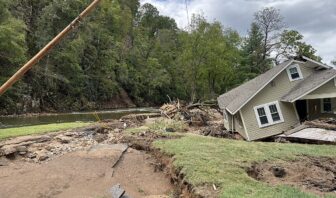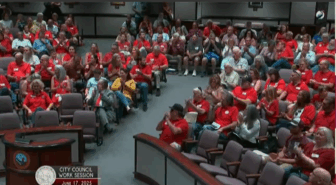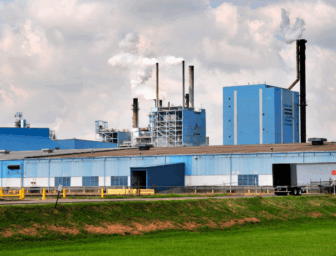CONTACT:
Jamie Nolan
240.396.2022
jamie@chesapeakeclimate.org
Measure will provide low-cost loans for residential solar energy projects
RICHMOND – Virginia Governor Bob McDonnell today signed the Voluntary Resource Fund Bill (HB 2191 and SB 975), which sets up a revolving loan fund for residential solar energy projects. The loan program, which passed through the Virginia Senate and House of Delegates unanimously, will promote economic development and the production of clean, renewable energy at no cost to the state.
Environmentalists touted the bill as a win-win-win for all major parties involved: the citizens of Virginia who will receive the loans, the commonwealth’s solar energy industry, and utilities with an interest in distributed solar power.
Chelsea Harnish, Virginia Policy Coordinator for the Chesapeake Climate Action Network, said: “This program presents an exciting opportunity for Virginians who want to reduce their carbon footprint by powering their homes with renewable energy, but might not be able to afford the up-front costs associated with installing solar panels.”
Virginia possesses some of the mid-Atlantic region’s best solar energy potential as well as exceptionally strong consumer demand. The 2009 federal stimulus package included rebates to Virginia homeowners for renewable energy projects. Demand was so high that this fund was exhausted within a matter of just days and 500 households remained on the rebate list. To date, the Virginia state legislature has done very little to encourage the development of solar energy.
“This is a great start, but we hope that this is just the beginning of a new commitment on Governor McDonnell’s behalf to do whatever he can to support the development of renewable energy sources and make Virginia the CLEAN Energy Capitol of the East Coast,” Harnish said. “Virginia has two extraordinary natural resources – its solar and offshore wind energy potential – and both are vital to the commonwealth’s clean energy future.”
Delegate Adam Ebbin (D-49), patron of the House version of the bill, said: “Virginia has some of the highest solar energy potential in the region, but we’re being outpaced by neighboring states like Maryland, which only has two-thirds of our population but 13 times the number of homes powered by solar energy. This fund will ensure that more Virginians have the opportunity to power their homes with cheap, clean, renewable energy and help our companies stay competitive in the growing solar energy market.”
The fund will grow over time as consumers repay their loans. If just one percent of Virginians give $5 a month during the fund’s first year, it will generate $1.8 million for loans.
The fund is expected to begin accepting donations in July 2011 and begin accepting loan applications in July 2012. To learn more about applying for a residential solar energy loan, consumers should contact the Virginia Department of Mines, Minerals and Energy.
The Chesapeake Climate Action Network (CCAN) is the first grassroots, nonprofit organization dedicated exclusively to fighting global warming in Maryland, Virginia, and Washington, D.C. Our mission is to build and mobilize a powerful grassroots movement in this unique region that surrounds our nation’s capital to call for state, national and international policies that will put us on a path to climate stability.
###




